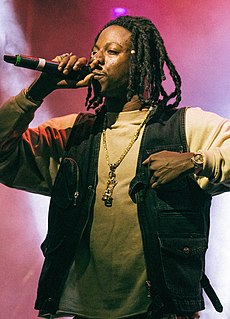A Quote by David Oyelowo
I think what a lot of people don't realize is how much being the leader of this movement weighed upon him. After all, he [Dr. Martin Luter King] was only 39 years-old when he was assassinated, and only 36 during the Selma campaign. He always seemed older than he actually was, and I believe part of that had to do with just how much life he had to live in order to lead this movement.
Related Quotes
We talk about how hard it is now. But if we look back at the '60s, we actually had a president that was assassinated. We had riots, we had Vietnam, Martin Luther King, Malcolm X, the FBI, and the Black Panther war. There was so much happening at the time where it felt like America was coming apart at the seams.
What is accurately portrayed is the rich humanity not just of Martin Luther King but of the movement, which was a multiracial movement. You had blacks and whites coming together and sacrificing, organizing and mobilizing the world. That's the first time we've had collective action put at the center of any kind of portrayal of Martin King on the screen.
The anniversary of the Montgomery boycott was being celebrated, and the handbill that was out, and all whatever literature that was circulated, didn't say practically anything about movement or what the movement stood for, what it had done, or anything, but was simply adulation of the leader, you know, [Martin Luther] King.
I love John F. Kennedy. My mother had been a worker on his campaign and adored him. I was just a kid when he was around. I did a lot of preparation, a lot of research. I can't do him... I sort of get a slight Boston accent, and I tried to get his rhythm. My only fear was that I was too old to play him, because I was much older than he was when he died, so I was concerned about that. But it was one of those, "Oh what the hell, I'm doing this. It's a great part, and I'm going for it."
When I was 15 years old and in the tenth grade, I heard of Martin Luther King, Jr. Three years later, when I was 18, I met Dr. King and we became friends. Two years after that I became very involved in the civil rights movement. I was in college at that time. As I got more and more involved, I saw politics as a means of bringing about change.
When I was 15 years old in the tenth grade, I heard Martin Luther King, Jr. Three years later, when I was 18, I met Dr. King and we became friends. Two years after that I became very involved in the civil rights movement. I was in college at the time. As I got more and more involved, I saw politics as a means of bringing about change
In less than a century we experienced great movement. The youth movement! The labor movement! The civil rights movement! The peace movement! The solidarity movement! The women's movement! The disability movement! The disarmament movement! The gay rights movement! The environmental movement! Movement! Transformation! Is there any reason to believe we are done?
In the States, the movement's actually gotten much much much stronger. There really was no climate movement so to speak before that - I think because everybody assumed that reasonable heads would prevail and do the right thing - and why would you need to have a huge movement in order to cause our leaders to deal with the most serious problem that they face. In a rational world you wouldn't. They would deal with it.
There's never been a film with Dr. Martin Luther King, Jr. at the center released in theaters. Ever! One does not exist. You've only seen tele-films and stage plays about him. Yet, we have big screens biopics about all kinds of people. So, I think it's only right that there be a full-length feature about Dr. King. I don't think there could be enough of them, but there should be at least one. So, here it is!
Perhaps this is our strange and haunting paradox here in America -- that we are fixed and certain only when we are in movement. At any rate, that is how it seemed to young George Webber, who was never so assured of his purpose as when he was going somewhere on a train. And he never had the sense of home so much as when he felt that he was going there. It was only when he got there that his homelessness began.
I was watching lectures by Malcolm X, Martin Luther King, Dr. Sebi and Umar Johnson. It's super mind opening when you listen to those words and think about how much they still resonate today. Think about how true those words are, and how much they predicted the future. That was what was really mind-boggling to me.



































